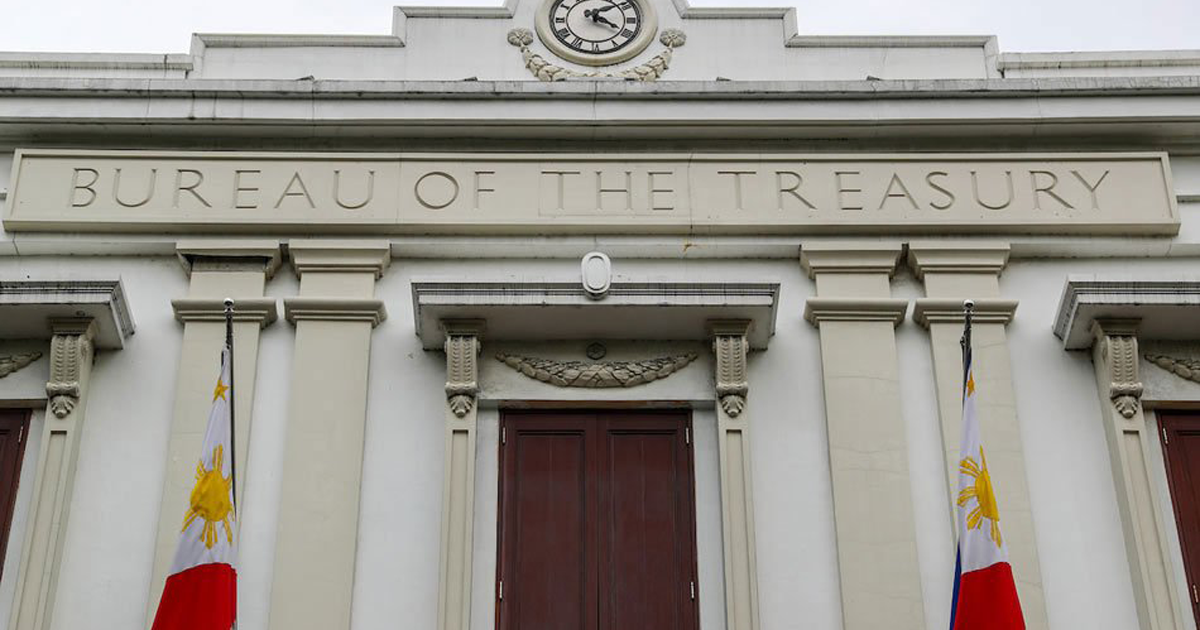Investing In Retail Treasury Bonds Supports Nation-Building

Every Php 5,000 investment made in retail treasury bonds (RTBs) makes a difference for the country.
According to the Bureau of the Treasury (BOTr), the government agency responsible for issuing RTBs, a retail investor capable of allotting a minimum amount of Php 5,000 can positively influence as every peso invested in RTBs is used to fund priority projects aimed at improving the lives of every Filipino and developing the competitiveness of the country.
“The sale of RTBs has been an integral part of the government’s plan to forward the country’s key economic programs but more importantly to create a stronger society,” said Sharon Almanza, deputy treasurer of the Bureau of the Treasury (BOTr) at the recently held Investors’ Briefing in Baguio City.
BOTr first issued RTBs in 2001 labeling it as RTB 1. By far, it considers the 5-year RTB 20 as its biggest RTB issuance with a Php 255-billion issue size. Inspired by this outcome, BOTr decided to do the 3-year RTB 21, which was issued on June 13. This latest tranche will mature on June 13, 2021 and pays an annual interest rate of 4.875%.
“The ability of the national government to raise funds at sizeable amounts reflects investor confidence in the growth story of the Philippines,” Almanza added.
RTBs are debt instruments issued by the Republic that pay periodic interest payments, with the eventual return of the principal on maturity date. They are made available to the investors via a public offering.
As a financing option, RTBs provide the Republic key benefits that include cost efficiency as their borrowing cost is generally lower versus funds borrowed abroad; economic resiliency as they reduce reliance on foreign currency allowing the economy to be less vulnerable to global economic threats; and, capital market development as the success of RTB issuances indicate investor confidence in the country which also reflects on the corporate borrowers.
On the part of the investors, RTBs, as an investment instrument, are relatively safe as they enjoy sovereign backing; affordable; easy to buy and sell; convenient; and, profit potential is higher than regular savings or time deposits.
However, despite the appeal of RTBs as an avenue for individuals to park their investments, BoTR admits a lot of work still has to be done to promote the instrument.
“The number of retail investors has been increasing every year but more work is needed for RTBs to attract not only the adult population but the millennials as well. We really want the investors to invest in this low-risk instrument and discourage them from investing in supposedly high-return but very risky investment that would cause them to lose money,” said Almanza.
BoTR, she noted, is particularly appreciative of the local banks for helping the government in promoting RTBs by acting as selling agents.
BDO Unibank and its investment banking arm BDO Capital & Investment Corp. have played major roles in the sale of RTBs since the maiden launch in 2001. As a staunch supporter of a progressive Philippines, BDO earlier declared its readiness to provide funding support to the government’s ambitious P7.74-trillion infrastructure projects.
BDO Capital president Eduardo V. Francisco said that the BDO group fully supports the government's infrastructure initiative. As a bridge, it can tap the banks for funding if there are delays, no matter what funding scheme is utilized.
According to him, “BDO Capital continues to dialogue with the government as well as the potential proponents of unsolicited proposals on how the BDO group can best support the success of the projects – whether through advisory or by way of project financing.”
About BDO
BDO is a full-service universal bank which provides a wide range of corporate and retail banking services. These services include traditional loan and deposit products, as well as treasury, trust banking, investment banking, private banking, rural banking, cash management, leasing and finance, remittance, insurance, retail cash cards and credit card services.
BDO has the country’s largest distribution network, with close to 1,200 consolidated operating branches and over 4,000 ATMs nationwide. It also has 26 overseas remittance and representative offices (including one full-service branch in Hong Kong) in Asia, Europe, North America and the Middle East.
BDO ranked as the largest bank in terms of total assets, loans, deposits and trust funds under management based on published statements of condition as of December 31, 2017. For more information, please visit www.bdo.com.ph.

